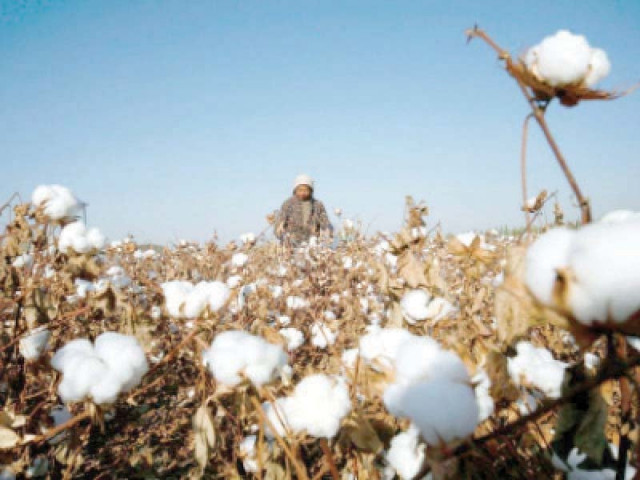Floods wreck third of cotton crop
Lack of supplies forces textile mills to close; devastation hits workers

Planting cotton for the first time was shaping up as a shrewd investment for young Pakistani farmer Muhammad Awais – until the floods struck.
“I used good, expensive seed, fertilisers and pesticides ... The first picking made me enormously happy,” said Awais, 26. “But the floods meant the reaping was my last,” he told the Thomson Reuters Foundation as he walked among the shreds of his ruined crops on a small plot in Hasanabad, a village in the central cotton-growing district of Dera Ghazi Khan.
Devastating floods, linked to climate change, submerged huge swathes of land in Pakistan during July and August, wrecking a third of its cotton crop and the livelihoods of millions of farmers, pickers and other workers.
Locally grown cotton is sold to the textile industry that accounts for 60% of Pakistan’s total export earnings, and the shortage of supplies has closed scores of mills, with hundreds of thousands of jobs feared at risk, industry sources said.
“A lot of mills are running at partial capacity or shutting down due to non-availability and shortage of quality raw material and tough economic conditions,” said Kamran Arshad, a senior official with the All Pakistan Textile Manufacturers Association (APTMA).
“With zero state support or social security, I’m afraid, 20% to 25% of the labour force will lose jobs,” he said by phone from the eastern city of Lahore.
In the textile hub of Multan, union representative Musawwir Husain Qureshi said about 200 mills had closed. Arshad gave a similar figure for the number of shutdowns and partial operations.
“Our mill has continued despite the odds,” said Qureshi, echoing the industry association’s calls for urgent government aid for the sector, which is also struggling with surging energy costs amid a wider economic malaise. The government announced discounted electricity rates for millers earlier this month, but officials have played down the risk of mass factory closures and cotton shortages – noting a series of poor harvests in recent years.
“For the last four or five years, they have been meeting the shortfall through imports,” said Muhammad Ali Talpur, an economic consultant at the federal government. “They will be importing as much as they have already been doing. So, no need for layoffs,” he added.
Shattered dreams
In Pakistan’s cotton farming areas, growers are already counting their losses, which are also affecting a myriad of different workers in the sector. Truck drivers have nothing to transport and many ginners - who are involved in the process of removing the seeds and debris from raw cotton - are sitting idle.
Like Awais, farmer Omar Daraz had hoped for a healthy yield and profit this year, especially since the price fixed by the government – 10,000 Pakistani rupees ($46) for 40 kg (88 pounds) of cotton – was promising.
“We were dreaming of earning well this time. But the rains and floods shattered all those dreams,” Daraz, 30, said as he surveyed scattered stems of cotton plants across his land, the craters left by the floods still visible.
Before the flooding, Pakistan’s cotton crop was forecast to reach 10.5 million bales, up from 8.3 million last year, and despite the losses, there is time for output to recover, said Cotton Commissioner Khalid Abdullah.
“The cotton crop not fully damaged can compensate. All buds open to flowers during September will translate into fibers,” he said. Still, the amount of cotton received by members of Pakistan’s ginners’ association (PCGA) is down 24% from last year, according to a report published earlier this month.
Cotton picker Khanum Mai used to work at Daraz’s farm, but she and fellow day labourers said the crop losses meant they would miss out on months of earnings.
Climate-proof crops?
Growers called on the government to help them recover by providing solar-powered tube-wells for irrigation, tractors with soft loans, and free seeds and fertilisers.
“You rehabilitate our farms and in six months we will be on our own,” Daraz said.
Abdullah, the cotton commissioner, said the government planned to give producers one bag of wheat seed and one bag of fertiliser to sow wheat for summer harvest. Daraz, however, said he and other local farmers would not be able to plant due to the damage left by the floods.
Published in The Express Tribune, October 18th, 2022.
Like Business on Facebook, follow @TribuneBiz on Twitter to stay informed and join in the conversation.





1733130350-0/Untitled-design-(76)1733130350-0-208x130.webp)











COMMENTS
Comments are moderated and generally will be posted if they are on-topic and not abusive.
For more information, please see our Comments FAQ